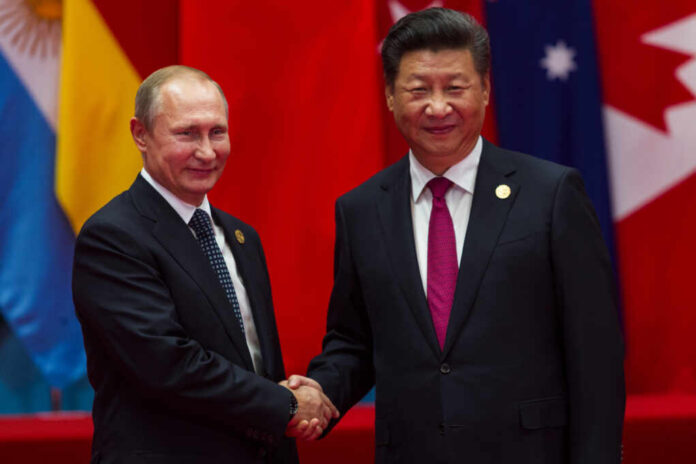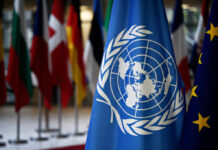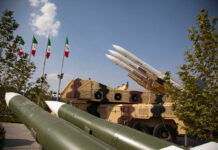
The threat of increased global tension looms as Russia and China publicly back Iran, setting the stage for a potential confrontation with the U.S-Israel alliance.
At a Glance
- Russia warned the U.S. against military action in Iran, highlighting possible severe ramifications.
- Iran’s response to Israeli strikes includes missiles and drones.
- Despite a strategic partnership, Russia is not supplying military support to Iran against Israel.
- Putin and Xi Jinping condemned Israel, advocating political and diplomatic resolutions.
Rising Tensions in the Middle East
Russia and China are quick to align themselves with Iran against the U.S.-Israel axis. With mutual oil interests and shared strategic goals cementing these alliances, militaristic escalations are feared. Russia recently issued a stark warning to the United States, cautioning that military action against Iran could lead to catastrophic, unforeseen consequences.
Iran, hit by Israeli strikes, retaliated with missiles and drones, invoking a response that exacerbated an already volatile environment in the Middle East. Despite their alliance, Russia has not committed military support to Iran in this conflict against Israel.
Strategic Alignments and Global Implications
Beyond the immediate retorts and counterattacks, these developments underline more significant, dangerous implications worldwide. Russia and China have condemned Israel’s actions, while President Vladimir Putin attempted to position himself as a peacemaker, holding a mediation olive branch that was quickly spurned by former President Donald Trump, who considered joining Israel’s strikes on Iran.
“We would like to particularly warn Washington against military intervention in the situation” – Maria Zakharova.
The intense diplomatic activity indicates how precariously these global superpowers treat their interconnected relationships. Iran, reliant on its paramilitary networks, the “axis of resistance,” faces isolation as these allies dwindle in strength, prompting dangerous avenues of exploration like targeting U.S. bases in the Persian Gulf.
Challenges to Global Stability
Pushing the Persian Gulf to the brink, tensions between Washington and Moscow continue to affect several geopolitical hotspots. The cancellation of U.S.-Russia talks further complicates an already tense situation in Ukraine. Iran’s attempts to rally more Islamic countries threaten increased instability while Russia juggles its military commitments on multiple fronts.
“If the conflict escalates further, not only will the conflicting parties suffer greater losses, but regional countries will also suffer greatly,” – Xi Jinping.
The strategic bonds, facilitated by lucrative oil trades and a united front against global powers, illustrate how nuanced the geopolitical chess game has become. Concerns mount as Russia and China watch their interests closely, wary of U.S. influence in the region. Military actions carry the risk of pulling the world to the brink of World War III, echoing through political, economic, and ideological ramifications.

























